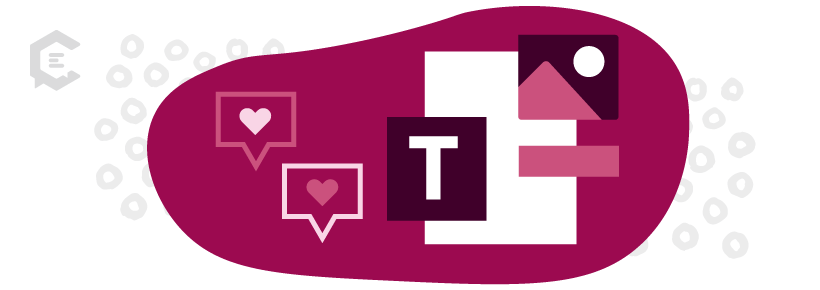Whether you’re just beginning to transition to full-time freelance work or you’ve been in the game for years, referrals are an important part of most freelancers’ businesses.
According to MailChimp’s Benchmark Report 2021 for Freelancers, a survey of more than 2,000 respondents, 70 percent of freelancers said the top way they won new business was from referrals and networking.
Why are referrals so valuable for freelancers?
- They can help you grow your client base with less effort than cold-calling tactics.
- Referrals may result in better clients since the referrer knows both your expertise and the client’s needs.
- Referred client relationships are already established in trust.
- Ultimately, the more high-quality referrals you get, the easier it is to choose the exact clients you want to work with – which could result in more enjoyable work and/or better pay.
But not all referrals are created equally. As freelance graphic and web designer Jennifer Bourn explains, she had to learn that the hard way.
When you pursue any old referral, keep in mind that the client…
- might have needs that do not match your skillset,
- may have been a challenging client to work with,
- might have requests that do not align with the offered compensation.
You want to optimize your time as best as possible. The key is to position your services to high-quality referrers and decrease the likelihood of receiving bad referrals.
Focus on high-quality referrals
As you use the tips below to secure more referrals for your freelance business, get more high-quality referrals by:
- Clarifying your work. On your website, LinkedIn page, ClearVoice portfolio, etc., get detailed about the type of work you specialize in. Provide samples of your work. Offer examples of the types of companies you’re a fit for.
- Screen candidates. You may not choose to discuss rates outright (or maybe you will), but you can get a better understanding of a project or client before you agree to continue the conversation. Ask about project deadlines. Visit web pages that describe more about who the client is. Inquire about what their goals for the project are. These insights give you a better idea of whether or not to keep the discussion going.
- Build better relationships. The best referrals will come from clients you’ve enjoyed working for, as well as professional peers who know your work and the people you trust. Be wary of referrals from people you barely know. Try to get more referrals from your current network.
5 ways to get more freelance business referrals
Now that we’ve established that quality is important when it comes to referrals, you can tap into the following sources to cultivate more valuable freelance business referrals.
1. Leverage your personal network
This is especially helpful for freelancers who are just starting out. Since you may not have the robust portfolio of seasoned freelancers yet, you can reach out to former coworkers and even friends and family members to let them know you’re open to freelance work and would appreciate their referral.
Friends and family may not understand exactly what you can offer, though. “Search engine marketing specialist? What is that?”
Provide those in your personal network with:
- A simple explanation of what you do in terms they can understand
- A professional website – even if it’s just your LinkedIn profile
- Examples of projects you’re qualified for and interested in
- An idea of what your freelance work capacity is
Your personal network likely knows business owners, marketers and other professionals who can help you grow your own network and get more referrals. It’s OK to graciously ask for referrals when you’re starting out, as well as remind your network you’re available when your workload is chugging along.
2. Build relationships in your community
High-quality referrals can also come from people you’re not as close with. Meeting people in professional settings can help you widen your freelance network.
Try these tactics to get more freelance business referrals:
- Invite a LinkedIn connection you respect to an in-person or virtual coffee date to learn more about them.
- Search for local organizations related to your industry and/or the freelancing community. Attend their mixers, happy hours and virtual chats.
- If you attend webinars online, create a relationship with the host(s). Participate during the webinar by commenting or asking questions. After the webinar, add them on LinkedIn with an explanation of how you know them.
- Seek out industry-related and freelancer conferences and events. They can be a good investment for your business since most include social aspects like meals or happy hours.
Don’t be the networker who simply pushes business cards into people’s hands. To introduce yourself professionally, career consultant Hillary Kuenn suggests focusing on forming relationships. Know how to present yourself and your services, but also ask questions and learn about the person you’re chatting with.
Relationships are built on reciprocity. Approach each conversation from the point of view of learning how you can help the other person. When you’re talking about yourself, remember to be specific about your skillset, the type of work you excel at and the types of clients you want to work with. Make sure you have a professional presence online you can point new connections to in case they do want to refer you for work.
3. Remind clients you’re referral-based
Once you do have clients you’ve been happy working for, they can be a solid source for high-quality referrals. They have direct experience working with you. They know the quality you produce and the service you provide.
To set yourself up for success for more client referrals, take these steps.
Produce exceptional work
This is key. For your clients to refer their own networks to a freelancer, they’ll want to protect their reputation and only refer the best. To produce your best work (and increase client retention), make sure you:
- Only take on work you’re confident you can complete at an excellent level
- Don’t spread yourself too thin so that you’re rushing through projects
- Ask questions to gain clarity on projects and minimize the revision process
You have to be realistic about your workload. If you say yes to too many projects, someone’s work is probably going to suffer. Ideally, you’ll want to be proud of each project you submit so you retain better client relationships.
Treat clients well
Client relationships also rely on the service a freelancer provides. In addition to exceptional work, clients value:
- Prompt and respectful communication
- Honesty and proactive suggestions and input
- When freelancers go above and beyond what they’re asked
Just like in an in-person office setting, how you treat your coworkers will impact your success at work. Some freelancers like to send their clients holiday gifts or thank you cards at the completion of a project. Think about how you can stand out as a freelancer beyond the work you’re providing.
Ask for referrals
Have a client who’s told you they’re thrilled with a recent project? Now’s the perfect time to remind them you’re a referral-based business.
With happy clients, you can:
- Ask them to write you a LinkedIn recommendation. Offer to return the favor.
- Ask if they’d be willing to write you a testimonial for your website. Tell them you’ll link to their website and add their logo. This increases awareness for their brand and is a quality backlink for their business.
- Tell them you’re thrilled they’re satisfied with the project. Let them know you’re open to similar projects. Tell them you’d appreciate their referrals if they know of anyone with a need for the services you provide.
Keep in touch with your satisfied clients so you stay at top of their minds. Follow their company’s social media pages and interact with their posts. Send them a message occasionally to check-in. Share their updates on your own profiles and tag them. (Learn more on how to use social media for referrals in tip five.)
4. Be a referrer yourself
As a recent Entrepreneur report pointed out, freelancing is more popular than ever. The number of freelancers increases each year. More businesses are supplementing their teams with freelancers. That means more work to go around. Referring work to other freelancers can help you grow your own business. If you’re asked to work on projects you’re not a fit for or that you’re just not interested in, there may be someone in your network who’s a fit.
That’s why forming relationships with other freelancers is so important. When you refer work to others, you’ll be at the top of their minds next time a project comes along their way that you’d be a fit for.
Avoid a scarcity mentality as a freelancer. It’s draining, and it’s just not realistic. Get to know the freelancers in your network: what they specialize in and what types of clients they want to work with.
When you refer a project to a freelancer who’s a great fit, that reflects well on you to the client you helped and to the freelancer. It helps boost your professional reputation and makes you a trustworthy, credible source in the freelance world — which can lead to more business for you.
5. Use social media
Social media sites like Facebook, Twitter and LinkedIn help you strengthen relationships with your contacts and remind them that you’re out there and available for work. We’ve covered how to use Twitter to grow your freelance career and how to use LinkedIn to get more freelance work.
Here’s a refresher on some tips to use social media to get more freelance referrals:
- Share industry news and thought leadership articles to establish yourself as an authority in your space.
- Participate in discussions that relate to your work and industry.
- Post a message that you’re open to certain types of projects and appreciate referrals.
- Add testimonials or recommendations from clients.
Build relationships by interacting with other freelancers, businesses and professionals who might be referral sources. Establish professional profiles. Make sure you’d be OK with a potential client seeing anything you post on a public profile.
Quality work + quality relationships = quality referrals
Building a strong referral network takes time, but it can provide so much value in the form of clients that are a better fit for your freelance business. Referrals save time and marketing expenses. A referred client already trusts in your work, which sets your relationship up on the right foot.
To get more high-quality referrals, be sure to:
- Produce excellent work for the clients you do have
- Build meaningful relationships with other professionals and with your clients
- Create a professional profile online that details the exact types of work you specialize in
- Leverage your personal and professional networks as a referral-based business
How have you had referral success as a freelancer? Send us a tweet @ClearVoice.






